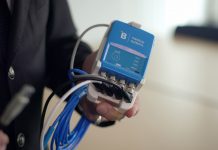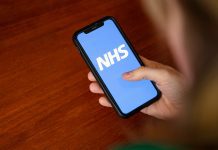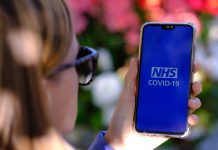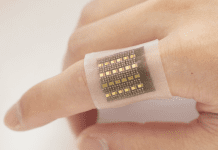Digital Health Related News
Digital trends that are revolutionising the medical cold chain
B Medical Systems explores the key innovations that are driving the digital transformation of the medical cold chain.
In the pharmaceutical world, the medical cold...
Nurses need greater support to embrace the digital revolution
An upsurge in digital skills training and support for nurses is required if full benefit is to be gained from the digital revolution.
New NHS software will improve care for millions of patients
New NHS software will deliver better care for millions of patients, help tackle waiting lists, and reduce hospital discharge delays.
Over 450,000 patients used NHS online GP registration in its first year
Over 425,000 NHS patients have used the new online GP registration service. Find out how to register with a GP online.
NHS launches trials to advance wireless technology in healthcare
NHS England has launched trials to help accelerate the development and uptake of wireless technology in healthcare.
As part of the trials, NHS organisations will...
NHS COVID-19 app saved 10,000 lives in the first year
Experts from the University of Oxford and the University of Warwick have estimated the NHS COVID-19 app prevented around one million cases, 44,000 hospitalisations...
Is ChatGPT the future of antibiotic prescribing?
Researchers from the University of Liverpool have tested whether ChatGPT, an Artificial Intelligence-based chatbot, could be used for antibiotic prescribing.
ChatGPT is a chatbot developed...
Could Artificial Intelligence improve mental health care?
Lund University in Sweden has developed an Artificial Intelligence (AI) tool that could improve mental health care.
Patients are often asked to rate their feelings...
Almost one billion electronic prescriptions dispensed in England
The Electronic Prescription Service has become the default method for prescribing and dispensing prescriptions in primary care in England, with almost one billion prescriptions...
New digital mental health tech for children recommended by NICE
Four digital mental health technologies have been recommended for use in the NHS by the National Institute for Health and Care Excellence (NICE).
Children and...
How loyalty card data could identify symptoms of ovarian cancer sooner
Loyalty card data from over-the-counter medicine purchases could help spot symptoms of ovarian cancer sooner.
Imperial College London researchers explored whether there is a link...
NHS Digital launch online community for healthcare software professionals
The new developer community will provide quick and easy access to important information and tools for healthcare software professionals.
NHS Digital has created an online...
Online therapy can help treat symptoms of depression
According to a new study, online therapy and smart devices can help identify and treat symptoms of depression and anxiety.
Amid a shortage of therapists,...
A wearable skin patch monitors haemoglobin levels in deep tissues
A team of engineers have designed a wearable skin patch using a photoacoustic sensor to help clinicians monitor haemoglobin levels.
Engineers from the University of...
Patients to trial at-home health checks to ease NHS pressure
Cornwall will be the first area in England to trial NHS Digital Health Check as part of plans to digitise face-to-face health checks.
The digital...
Is self-driven healthcare the future?
New research shows that self-driven healthcare can improve health outcomes and reduce costs, helping promote a sustainable future.
Self-driven healthcare is an umbrella term introduced...
Fitness levels can be accurately predicted using wearable devices
University of Cambridge researchers have developed a method of measuring fitness levels on wearable devices, without the need of exercising.
Normally, tests to accurately measure...
Research grant to improve the Baby Check app for spotting sickness
A smartphone app called Baby Check app aims to identify seriously ill babies and will be upgraded to provide improved support to parents and...
The problem with giving patients access to their medical records
The National Institute for Health and Care Research (NIHR) analyses the consequences of giving patients online access to their GP medical records.
In the UK,...
Health Europa Quarterly Issue 23
Welcome to Health Europa Quarterly Issue 23, which features fascinating expert insights in the fields of infection control, future pandemic preparedness, antimicrobial resistance, women’s health,...


































